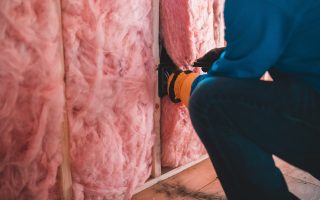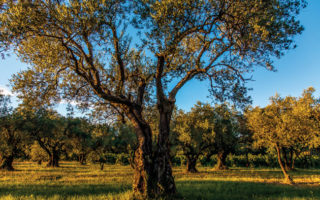Beekeeping in the Charente – August

August is usually a quieter month for beekeepers; the main honey flow is over, the bees are settled and no longer thinking about swarming, and the drones are dwindling in number. Having said that, the weather has been so hit and miss for the past few weeks, blisteringly hot one day, cold and wet the next, that the bees are just as confused as we are! By the end of July last year we had harvested most of the honey from our hives, but this year the bees are only just filling up the super frames with nectar, so it will be at least another month before we can go on a robbing mission.
This slight delay does give us time to assess what needs to be done and to get our equipment ready. The idea of collecting honey from the hives is attractive enough but how do you actually do it, starting with the knotty question of how do you get the honey without the bees? We place crown boards fitted with Porter bee escapes just above the queen excluder and between the brood box and the supers. The crown boards have two oblong holes cut in them into which we fit plastic one-way valves; these allow the bees to move off the super frames down into the brood box but they can’t go back. We leave the boards in for around 18 hours (overnight and the next day) and then remove the super frames sans bees. Some beekeepers will lift off the whole super box but I find this a little heavy, especially if every frame is full of honey. I prefer to take full frames out and place them in a plastic crate with a lid, replacing the frames with new ones, and leaving those that aren’t quite full for the bees. The lid on the crate means that hungry wasps and curious bees aren’t attracted and I can return to the kitchen without too much hassle.
As ever, preparation is the key to ensuring things run smoothly when harvesting honey. Setting up your kitchen (or barn or wherever you plan to extract your honey) so that things are within reach makes sense, as does ensuring surfaces are clean and easy to wipe. Honey is sticky and silent and has a nasty habit of spilling over places you don’t want it to without making a noise so you don’t notice it making a mess! You’ll need a sharp knife to remove the wax cappings, a large bowl for them to fall into, some means of getting the honey out of the cells (a spinner or presser), a couple of large settling tanks or buckets with taps in the bottom, a fine sieve (to strain out all the bits of wax and bees’ legs that inevitably find their way into the honey) and of course, plenty of sterilised jars.
If you are collecting honey for your own use then there is no need to label your jars, but if you are planning to sell it then you need to check on the latest regulations regarding food hygiene plus weights and measures and correct labelling.
Once you’ve taken your bees’ honey then you need to check on their stores – after all, you’ve just pinched everything they were saving up to see them through the winter. If they don’t have enough nectar and honey stored in the brood frames then you will need to feed them a strong sugar syrup so that they can build these up before the really cold weather sets in. This is also the time to check the strength of colonies and if there are any weak ones you can think about uniting them to ensure you’ll see them again in the spring.
The other jobs for the end of summer are to treat for varroa, and to clean the emptied super boxes and frames, as well as your other equipment.
As ever, please don’t hesitate to get in touch if you have any beekeeping queries.
Amanda and Kevin moved to Confolens (16) in 2015, opening a chambre d’hôte and launching their beekeeping experience holiday business. They live with five cats, two tortoises and several thousand bees, and enjoy sharing their adventures in the apiary with others.
Share to: Facebook Twitter LinkedIn Email
Leave a reply
Your email address will not be published. Required fields are marked *



